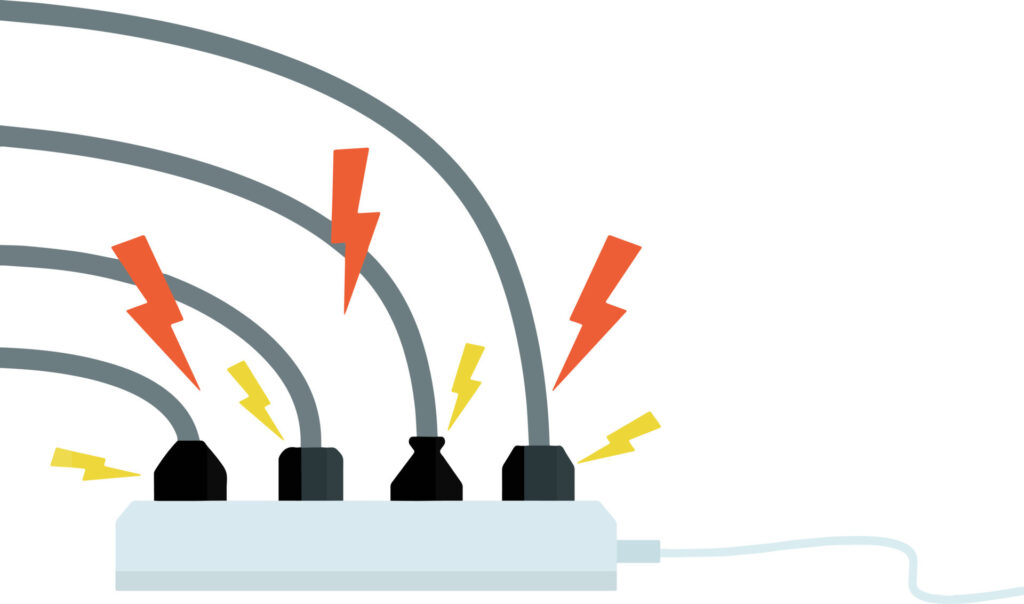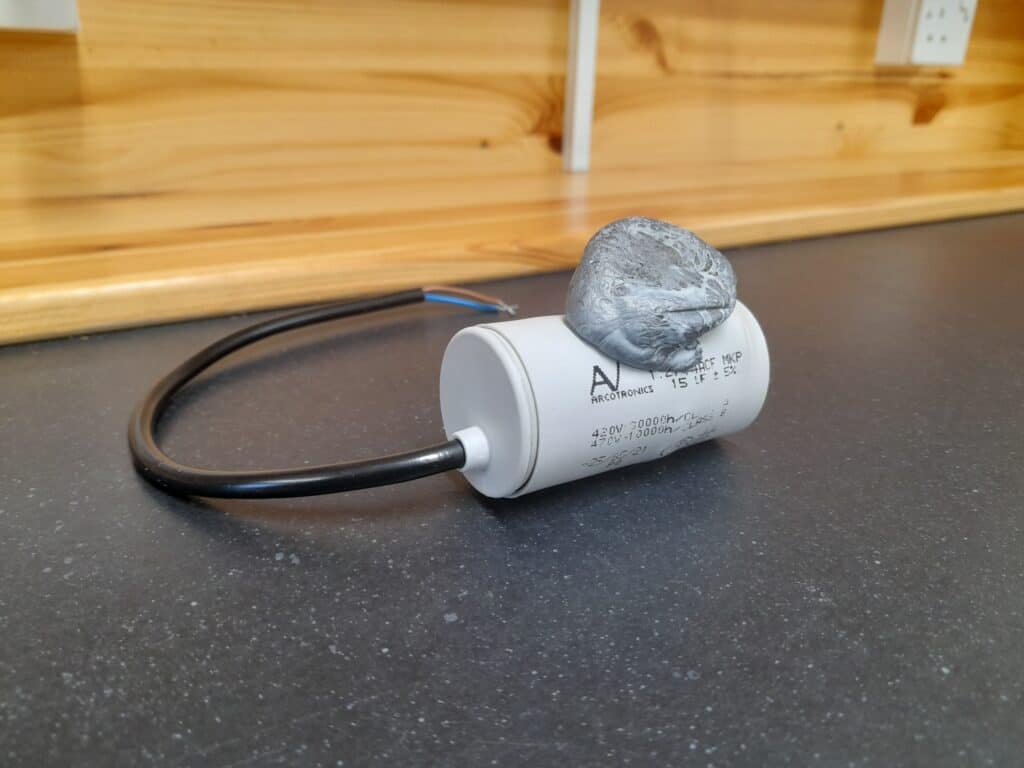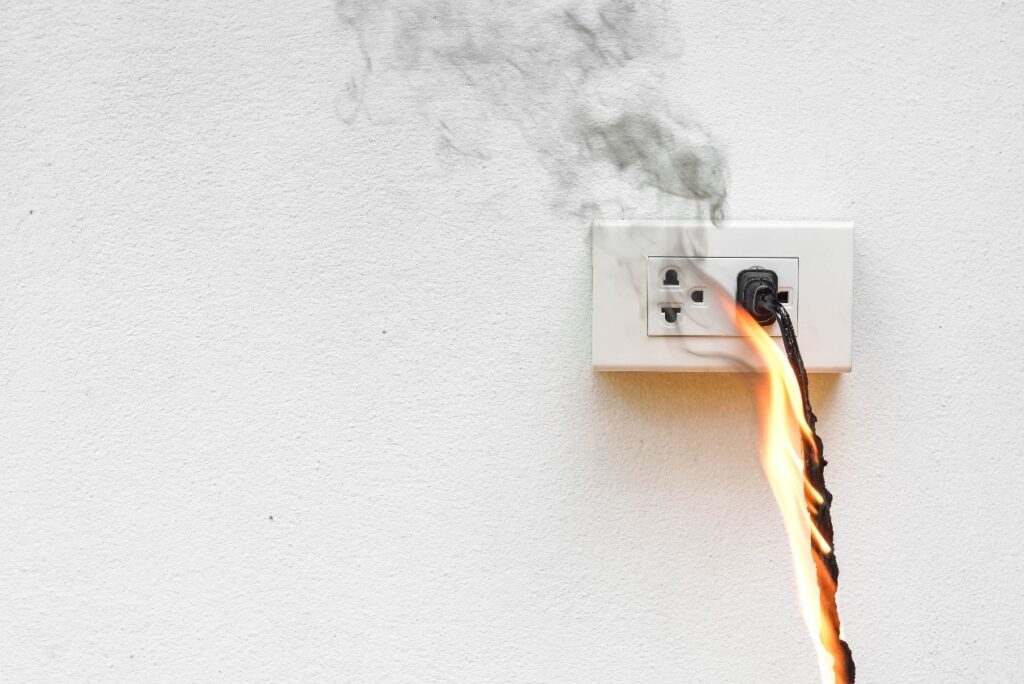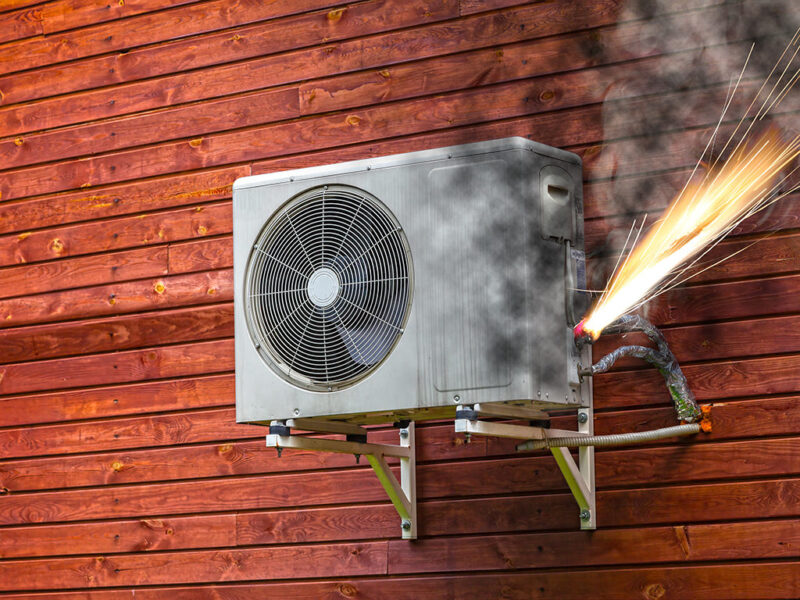If your HVAC system keeps tripping the circuit breaker, a licensed electrician should investigate immediately. Such issues often stem from wiring problems, which could potentially cause fires.
Before commencing any repairs, you must follow the lockout/tagout procedure and wear insulated tools to reduce the risks of electrical shock. Once this step has been taken, here are a few common AC electrical problems and how to manage them.
If you’re not comfortable or need expert assistance in West Fork, check out the services available on this site.
Page Contents
Thermostat Issues and Solutions
Thermostats play a crucial role in controlling HVAC systems, but when they malfunction, they can lead to significant problems. A faulty thermostat might cause your HVAC system to run continuously or not run at all. Common signs of a malfunctioning thermostat include unresponsive controls or discrepancies between the setting and room temperature.
To troubleshoot, first check if the thermostat is in the correct setting (heating or cooling) and is programmed correctly. Sometimes, simply replacing the batteries can solve the issue. If these steps don’t work, check for any loose connections or dirt accumulation inside the thermostat. If the problem persists, it might be time to consult a professional or consider replacing the thermostat.
Overloaded Circuits and Resolution

HVAC systems require a significant amount of power to operate, which can sometimes lead to overloaded electrical circuits, especially in older homes with less electrical capacity. Signs of an overloaded circuit include flickering lights, buzzing sounds from the electrical panel, or the HVAC system struggling to start.
To address this issue, ensure that your HVAC system is on its dedicated circuit. This prevents other appliances from drawing too much power from the same circuit. If you suspect your home’s electrical capacity is insufficient, it’s wise to consult with an electrician.
Faulty motor or fan
The fan is one of the key elements of an air conditioning system as it distributes conditioned air throughout your home. However, when it stops acting funny, it can adversely impact other parts of the system and leave you feeling uncomfortable in your space. By becoming familiar with HVAC system symptoms, it should be easy to pinpoint any potential issues quickly.
If your fan is spinning but failing to blow cool air into your home, there could be an issue with its blower motor. It could be worn out or not receiving enough power from your system; any screeching noises indicate something has blocked up the fan blades; alternatively, its motor could simply be overheating.
Malfunctioning capacitor

Faulty capacitors can also be an issue. These cylindrical components transfer electric charge from your circuit board to the fan motor, without which your fan won’t start up. Since capacitors may become damaged due to excess voltage levels, having them checked by professionals is recommended.
Do not attempt to remove a capacitor by yourself, as this can be extremely hazardous and cause severe injuries or death. Always consult a professional before replacing the capacitor; they will run resistance tests on its windings to verify they are open instead of shorted and check that its breaker provides 120V to its motor.
Power surges
Lightning strikes can create power surges that quickly overload and destroy electronic appliances, TVs, and other plugged-in electronics; over time, these surges may degrade them further.
While power surges may come from outside your home, most originate within it due to simple activities like plugging multiple electrical devices at the same time into power strips (particularly when an air conditioner kicks on), leaving multiple plugs connected for too long resulting in multiple power surges being generated within your home.
Power surges are short-term surges of current, voltage, or energy within an electric circuit. Although only lasting fractions of seconds, they can cause havoc with your HVAC system and cause other problems around your home, making prevention critical.
Regular maintenance can help protect against surges. Unplug electronics and appliances when not in use to reduce unnecessary electricity use. Install surge protectors at all outlets.
For large items like refrigerators, it may also be worthwhile using separate circuits with separate switches and upgrading old wiring as necessary – faulty wires are a leading cause of power surges, so contacting an electrician should help replace them as quickly as possible.
Short circuits

Short-circuiting occurs when current travels outside its designated circuit without encountering resistance, heating the wire up and potentially leading to fires. Thankfully, short circuits are usually detected via circuit breaker trips, which shut off electricity flow for your safety.
If your breaker keeps tripping, that could indicate an electrical problem ranging from appliances, wiring issues, or pest infestation. Most often, an HVAC technician can simply tighten or replace affected wires.
To check for short circuits, first, disconnect your service disconnect, turn off the thermostat mode, and attach an ammeter to a 24V power line from a transformer secondary to an air handler or furnace in a split system or main board on package units at field connections.
If your ammeter indicates high amperage with the fuse blowing, then this indicates a short circuit where the green fan wire is getting hot and making contact with either the ground frame of the unit or common wire; to remedy this, simply switch off all power to the unit while disconnecting any suspected wires as well as use an electrical tester to locate where shorts may occur.
Poor connections
Electrical wiring connecting each component in your HVAC system is vital to ensure its accuracy, efficiency, and protection. Still, over time, this wiring can fray, corrode, or pull apart, disrupting current flow and leading to malfunction. If bare wires appear around your equipment, a professional should handle it immediately.
Unsecured wires can lead to overheating and mechanical failure. Your technician can inspect your wiring to tighten loose connections and rectify the situation. Poor connections can reduce the overall performance of your HVAC system and result in higher electric bills than normal. Furthermore, improper airflow can contribute to a stuffy home.
Individuals may resort to window units and floor heaters, which waste energy. Hiring qualified professionals for installation and regular inspection will guarantee its optimal functioning, saving money over time.






